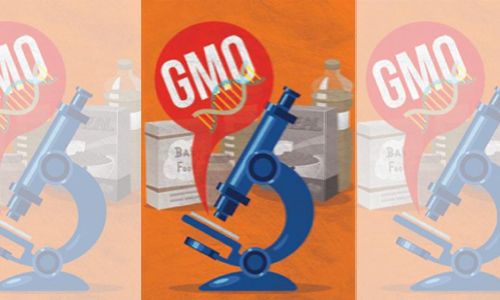CSE study finds genetically modified ingredients in food products

It all started at the weaning stage Nikki name changed was about to turn one when it became evident that she was not gaining weight After several visits to paediatricians and multiple tests, she was diagnosed with cow milk protein allergya disorder found in some 7 per cent of children in the country
It all started at the weaning stage. Nikki (name changed) was about to turn one when it became evident that she was not gaining weight. After several visits to paediatricians and multiple tests, she was diagnosed with cow milk protein allergy—a disorder found in some 7 per cent of children in the country.
The doctors said that Nikki’s immune system considers the protein in cow milk as something that the body has to fight off. This leads to damage of the intestinal mucosa lining for which Nikki is not able to digest most of what she eats and suffers from chronic diarrhoea.
They suggested changes in her diet—first eliminate all potentially allergenic foods from her diet, so that the intestinal lining can heal, and then reintroduce one food at a time to monitor possible reactions. Till she outgrows the allergy, doctors recommended a hypoallergenic infant formula, Similac Alimentum, to supplement her nutritional needs.
Manufactured and imported by American healthcare giant Abbott Laboratories, a 400-gram packet of Similac Alimentum costs Rs 2,800 and can meet Nikki’s requirement for about 10 days. But cost is the last thing on the mind of Nikki’s mother, an occupational therapist in east Delhi.
Every day, she carefully prepares the formula milk meeting the prescribed calibration standards to ensure that Nikki regains health. Little does she know that all these months she has been feeding her toddler genetically modified (GM) food, whose safety to health has been a matter of concern worldwide.
CSE study
Over the past six months, CSE researchers analysed 65 food products that are likely to contain soyabean, corn, rapeseed (canola) or cottonseed oil in some form or the other. These are the crops whose genetically modified variants are grown on 99 per cent of the area under transgenic food crops in different parts of the world, and are used in everyday food like cooking oils, breakfast cereals, ready-to-cook and ready-to-eat foods, infant formula and protein supplements. Thirty of the food products are manufactured domestically; the remaining imported.
The evidence of genetically modifed ingredients was found in 32 per cent of the 65 products tested. Almost 80 per cent of these are imported. All the 16 imported products that CSE found GM-positive were from USA, Canada, the Netherlands, Thailand and the UAE.
USA and Canada are the leading countries growing genetically modified crops and producing genetically modified food products. Though the remaining do not allow commercial cultivation of GM crops, their food processing units heavily rely on raw material imported from USA and Canada. Hudson canola oil imported from the UAE says on its label that it is “extracted from Canadian oilseeds”.
Labels don't reveal the truth
Consumers like Mishra and Nikki’s mother have no way of knowing the truth because labels do not always tell the whole story; some products even take the liberty of making false claims. CSE findings show most samples—74 per cent of the imported products and 96 per cent of the domestic ones—did not mention anything about GM on their labels.
These products are imported by industry behemoths like Jindal Retails (India) Pvt Ltd, Abbott Healthcare Pvt Ltd, Dalmia Continental Pvt Ltd and Jivo Wellness Pvt Ltd, and lesser-known Bajoria Food Pvt Ltd, Newage Gourmet Foods in Delhi, Century Edible Cooking Oils Pvt Ltd, Olive Tree Trading Pvt Ltd and Guru Kirpa Impex, Delhi.
Down To Earth (DTE) contacted some of the industry representatives to check if they had the approval to import genetically modified food. While the All Indian Cottonseed Crushers’ Association (AICCA) refused to comment, Jivo Wellness Pvt Ltd, which claims to be the largest seller of canola oil in India, evaded DTE’s queries and the Olive Tree Trading Pvt Ltd did not respond till the magazine went to press. (Courtesy: Down To Earth; Article written by Amit Khurana, Banjot Kaur, Bhavya Khullar, Snigdha Das, Sonam Taneja and Vibha Varshney)








